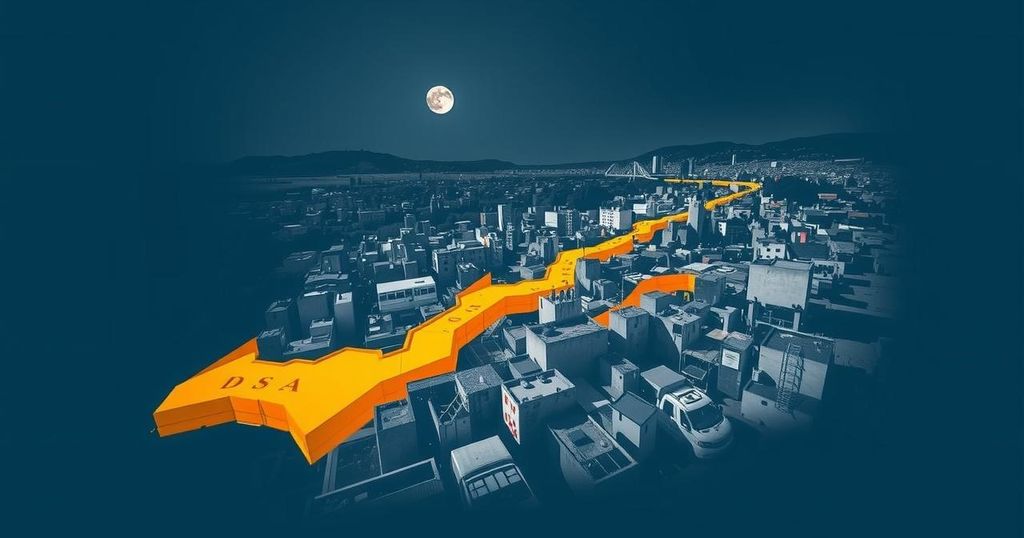Morocco: A Leader in the Fight Against Inequality Following Post-Earthquake Reconstruction Efforts
Morocco has ascended to 73rd place in the 2024 Commitment to Reducing Inequality Index, becoming the top riser largely due to reconstruction efforts post-earthquake. The nation ranks fifth in the MENA region, 11th among lower-middle-income countries, and is noted for improvements in education spending. Despite its progress, concerns over sustainability linger amid global inequality trends.
Morocco has shown impressive advancements in combating inequality, as evidenced by its rise in the 2024 Commitment to Reducing Inequality Index, recently published by Oxfam and Development Finance International (DFI) on October 21. The North African nation now ranks 73rd globally among 164 countries and regions evaluated, marking it as the fifth highest in the Middle East and North Africa, trailing only Israel, Jordan, Tunisia, and Algeria. Notably, Morocco surpasses other regional counterparts, including Palestine, Egypt, and Iran, in this assessment. In the classification of lower-middle-income nations, Morocco occupies the 11th position, marginally behind Uzbekistan and ahead of Bolivia, Egypt, Eswatini, and Honduras. Within the African context, it ranks behind South Africa, Mauritius, and Lesotho. On a global scale, Norway leads the rankings, followed by Canada, Australia, Germany, and Finland. The report examines three critical dimensions: public services, taxation, and labor, where Morocco stands at 90th, 97th, and an impressive 21st respectively. This noteworthy performance has made Morocco the top riser in this edition of the index, credited largely to increased spending geared towards reconstruction efforts following the devastating earthquake in September 2023 that resulted in nearly 3,000 fatalities. Oxfam and DFI commend Morocco as this edition’s standout nation, citing a thirty-position leap since the last assessment in 2022—a rise unmatched by other countries such as Malaysia, Canada, and Spain. Despite this remarkable achievement, the report cautions that Morocco, along with other significant risers, may not maintain its position in future evaluations. The dramatic jump of Morocco, which ascended 96 places due to robust post-earthquake relief and reconstruction expenditures, illustrates the impact of focused fiscal interventions on addressing inequality. Furthermore, the report acknowledges Morocco’s status as one of the “top 10 education spenders.” It highlights a 17% increase in budget allocation for education, a change driven by the necessity to reconstruct schools after the earthquake while also investing in initiatives aimed at diminishing disparities in the education system, such as free school meals and early childhood education.
The Commitment to Reducing Inequality Index serves as a crucial benchmark for evaluating governmental commitments to tackling inequality through investments in public services, taxation, and labor rights. This year, it highlights Morocco’s significant strides in addressing inequality post the catastrophic earthquake, demonstrating how targeted spending can drive improvements in global rankings. The analysis of Morocco’s performance also provides insights into the broader regional and global contexts of inequality, particularly among lower-middle-income countries and within Africa as a whole.
In summary, Morocco’s significant improvement in the 2024 Commitment to Reducing Inequality Index underscores the effectiveness of strategic governmental spending on reconstruction and social services following the September 2023 earthquake. While it has achieved notable rankings in education and labor, concerns remain about its ability to sustain these advancements in the face of broader global trends that often exacerbate inequality. The recognition of Morocco as a top riser invites a closer examination of how fiscal policies can effectively address inequality and enhance public welfare.
Original Source: en.yabiladi.com




Post Comment